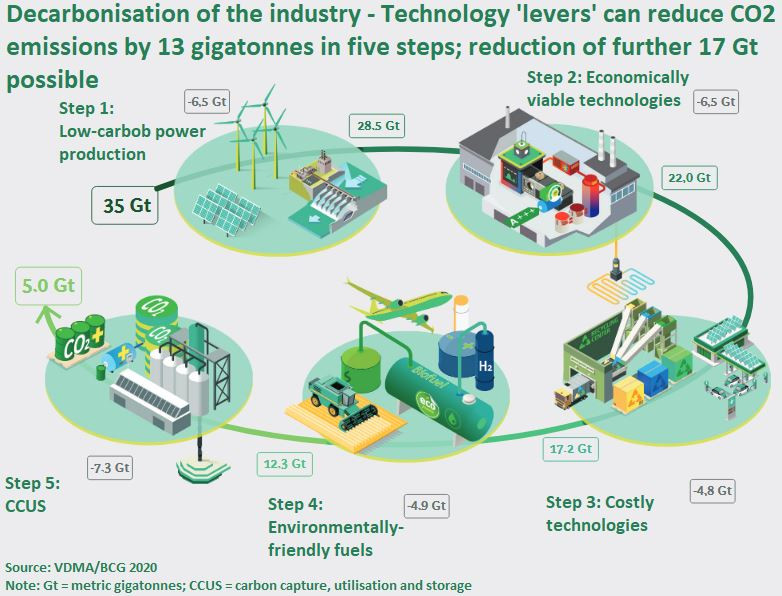Industry could reduce emissions by nearly 90 percent with modern technology – VDMA
The use of new low-emission technology across all sectors could massively reduce industrial greenhouse gas emissions in the OECD and BRIC countries, the German Engineering Federation (VDMA) says. The decarbonisation of industrial production offers a global market of 10 trillion euros by 2050, VDMA says, based on a study by the consultancy BCG. In particular, hydrogen production with renewable power sources has great potential for machine builders that cater for all kinds of industrial customers. According to the study, green technology could lower industry emissions by 30 gigatonnes in 14 different industrial sectors, meaning a reduction of 86 percent. "Since machine builders are so closely interlinked with almost all industries, developing and offering climate friendly technology has a huge economic and ecologic potential," BCG's Markus Lorenz said. Deputy VDMA head Hartmut Rauen said applying a "global perspective" that ensures low-emissions technology finds commercial users around the globe would be needed to generate the greatest environmental benefit and help bring new industrial procedures to scale, adding that annual revenues in the market could well reach up to 300 billion euros. Hydrogen production could be particularly important thanks to its wide range of applications and help to substantially lower emissions of the industrial sector as whole.
Industrial sectors such as steel, cement and chemicals are some of the Energiewende's toughest nuts to crack, because deep emission reductions require entirely new production methods. Germany's government has begun to address these difficulties in earnest earlier this year with a climate strategy for the industry, in which hydrogen production plays a key role.


